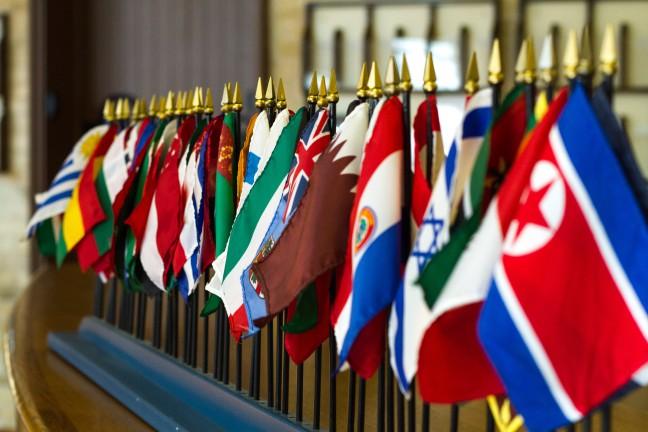Student scholars at this year’s Ethnic Fest centered discussions of race and identity on one question: Who am I?
Powers-Knapp scholars senior class addressed this question in a poem during the event, an opportunity for nearly 500 scholars of racially and ethnically diverse backgrounds to meet and learn from each other’s experiences.
The Powers-Knapp and Chancellor’s scholarship programs are privately funded and distributed to academically outstanding University of Wisconsin students from racially and ethnically diverse backgrounds. The programs cover resident and non-resident tuition for students and also include stipends for books.
Veronica Cox, one of two persons responsible for compiling the 15 voices in the poem title “I am myself,” is a senior in the Powers-Knapp scholarship program, which along with the Chancellor’s program.
The event, which took place Saturday evening, commenced with a nearly two hour series of presentations put on by each scholarship class in both the Powers-Knapp and Chancellor’s scholarship programs.
Many audience members, consisting entirely of members in these scholarship programs, arrived with outfits reflecting their own cultures, including Vietnamese traditional dresses, Hmong casual clothing and formal boots worn in Mexico.
Dominic Ledesma, associate director of the Chancellor’s Scholarship program, said Ethnic Fest serves as the one event during the year when members from both scholarship programs join together. Because of the diverse array of identities represented in these programs, he said the event, in its 12th year, provides an opportunity for these students to learn with and from each other.
Ledesma said one of the solutions to mitigate barriers preventing the underrepresented students who make up the two programs is to identify with peers with the same experiences.
“There are limited actual times when people are together, so we put a high emphasis on relationships,” Ledesma said. “This event is supposed to facilitate relationships among fellow scholars.”
In a series of videos, skits and poems, this years’ scholars not only celebrated their diversity, but also addressed some glaring issues of race they face on a day-to-day basis. With the opening remarks addressing the Tony Robinson shooting, Melanie Kirkwood, this year’s master of ceremonies, emphasized the importance of the relationships the scholars forge with each other.
Many students spoke on the theme of taking ownership of their own identities, which stereotyping often skews. When presenting on double standards, some students even spoke about the scholarship program itself, and how students are often accused of receiving it simply because of race and not merit.
For many students such as Cox, the camaraderie and a sense of belonging justifies membership in the program more than money ever would.
“It’s about embracing who you are and the experiences you’ve learned and being able to talk about it,” Cox said. “Not being afraid of fitting into molds people think you are and flourishing and taking those experiences and using them positively more than negatively.”














